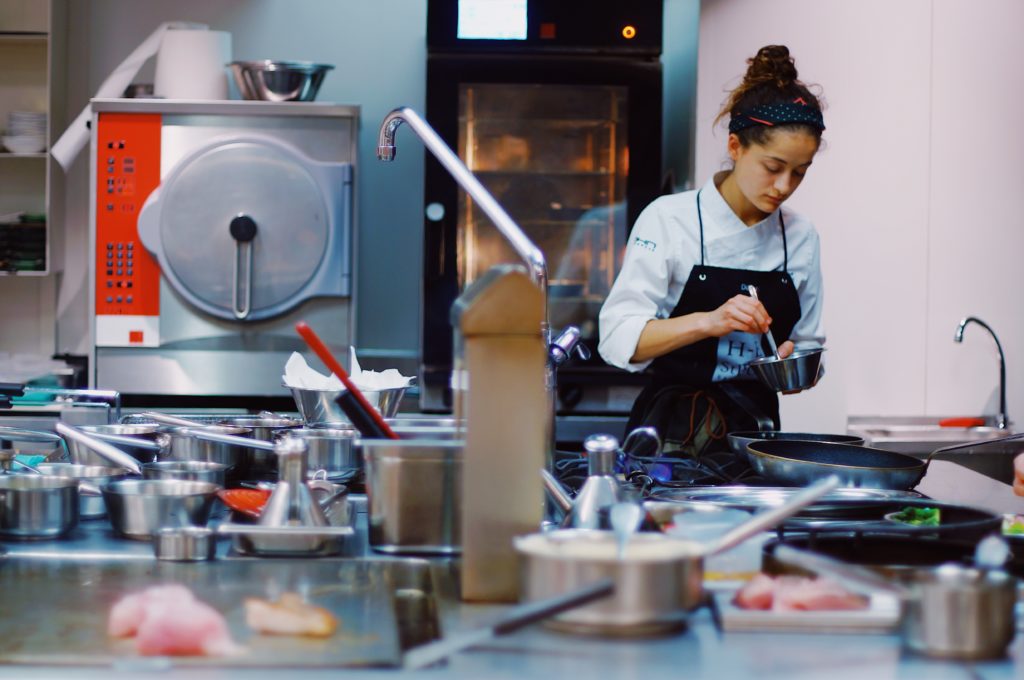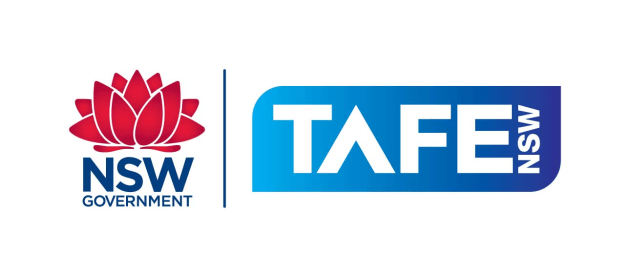Globalisation, automation and rapidly changing needs mean the future of employment will probably look very different to now. In fact, many current careers won’t exist in the next 10 to 20 years. So, it’s critical that students ask the important question: ‘Will my chosen study path lead to strong job opportunities after graduation and beyond?’
In this series, we’re exploring a range of occupations forecast to have strong employment prospects in the future. Some careers in the tech industry are quickly emerging. Plus, there are other existing careers that will also have an important place in the employment opportunities of tomorrow.
Today, we’re checking out the career possibilities in the hospitality industry, specifically in commercial cookery. The hospitality sector in Australia has been expanding steadily over the past five years and is projected to continue, thanks to the country’s ‘foodie’ culture, population growth and a general increase in consumer demand. Employment is forecasted to grow rapidly in the next five years, by 12.1% or an additional 91,000 jobs.
Commercial cookery is a fast-paced, detail-oriented and creative career path. If you can see yourself as a future master chef, pursuing commercial cookery could be a smart choice.
What is commercial cookery?
The definition of commercial cookery is pretty simple; it just means cooking for others in a professional setting, usually as a chef or kitchen hand. Cooking on a large scale often includes the use of high-tech appliances like steam ovens and blast chillers, but commercial cookery also requires soft skills that can help you work together with the rest of the team. According to the Tourism, Travel and Hospitality IRC’s 2018 Skills Forecast, the top priority skills for the hospitality sector are active listening, service orientation, coordination, speaking and social perceptiveness.
What kinds of careers are available?
The most in-demand professions in the hospitality industry in Australia are chefs, waiters, kitchen hands, baristas, and cafe and restaurant managers.
If you choose to pursue a career in fine dining, you may find yourself working within the kitchen hierarchy initially used in French restaurants called the brigade de cuisine, or kitchen brigade. In this system, you can work your way up from commis chef to chef de partie to sous chef to chef de cuisine. Each position has its own responsibilities and allows you to learn from those higher up on the ladder.
Why work in commercial cookery?
Industry growth
The Australian Government says there has been very strong job growth for chefs over the last five years, with that growth only set to continue over the next five. They estimate that there will be over 16,000 job openings per year from now until 2023.
Share your passion
The long hours and demanding nature of commercial cookery mean it is best suited to those with a real passion for food. Maybe you grew up cooking traditional recipes with your family or learned to love exotic flavours while travelling. Either way, as a chef or kitchen hand you can be part of introducing others to incredible food experiences.
Get creative
Cookery is a precise art, but it also allows chefs to experiment with different flavours and textures on the plate. After studying and working in a kitchen, you should have a good sense of when and how to push culinary boundaries. If you like coming up with new ideas and receiving instant feedback, you can work with your team to source unusual ingredients and develop new menu items for your customers.
Learn on the job
If you’re a kinaesthetic learner (meaning you learn through doing activities), commercial cookery could be a good fit for you. Although there are some important health and safety lessons to learn in the classroom, most of the technical skills will need to be acquired through real-life practice. This hands-on method also means you will always be up-to-date with the latest innovations in the kitchen, as many workplaces hold regular staff training days.
Make your own way
The hospitality industry is perfect for those looking to advance quickly or even start their own business. If you are committed to your career in cookery, you can potentially rise to the top of the kitchen in a few years after you graduate. Once you have enough experience, you could even go out on your own, as the demand for innovative new cafes and restaurants in Australia is high. Plus, cookery is an incredibly transferrable skill, meaning you can take your qualifications overseas to work in restaurants or hotels around the world.
Education pathways
To kickstart your career in commercial cookery, you will want to choose a course that combines classroom and practical learning. There are many dedicated cooking schools in Australia, as well as qualifications at TAFE and other technical colleges. It would also be helpful to get a part-time job in a restaurant or cafe during your studies to make sure you have a strong chance of securing full-time employment when you graduate. Relevant courses include:
- Certificate III in Commercial Cookery
- Certificate IV in Commercial Cookery
- Certificate III in Hospitality
- Certificate IV in Hospitality
- Diploma of Hospitality Management
- Advanced Diploma of Hospitality Management
- Bachelor of Business Studies (CSU)
Student story
Eunah Kyung has completed a Diploma of Hospitality Management and is currently studying a Certificate IV in Commercial Cookery at TAFE NSW in Newcastle. Originally from South Korea, Eunah enjoys the mix of theoretical and practical learning in her course.
“What attracts me most is that I can make the most use of practical techniques and theories that I learn and study in class, into the field straight away. That is because Hamilton TAFE NSW runs its own restaurant and cafe for students and customers.”
She says that the support for international students, including with their English language skills, has been a huge help during her time in Australia.
“I have found that all staff and teachers are very warm, kind, supportive and approachable,” she says. “They are willing to help me at any time and encourage me to reach my potential when I learn new skills in class. Every student receives teachers’ feedback right away.”
The strong industry connections and up-to-date information at TAFE helped Eunah find a job in hospitality during her second year of studies.
“A number of industry visits – such as a winery visit, a few resorts and hotels visits, and a hospitality fair – were so helpful to see, hear and experience from experts. The mock interview with teachers also had a great impact on me. It really helped me take an interview to get a job later.”
WANT TO STUDY FOR A FUTURE CAREER IN COMMERCIAL COOKERY?
TAFE NSW is Australia’s largest vocational education provider. As the Australian Government’s public provider of vocational education and training (VET), TAFE offers international students state-of-the-art facilities, experienced teachers and a strong reputation within the industry.
TAFE has extensive support programs for domestic and international students and is often a more affordable option when compared to universities and private colleges. For more information about starting your career in commercial cookery, visit the TAFE NSW website.
Be Job Ready. TAFE NSW creates first-class learning experiences and quality, personalised services that help our students reach their goals.
COTF TAFE NSW Article – RTO 90003 | CRICOS 00591E | HEP PRV12049






